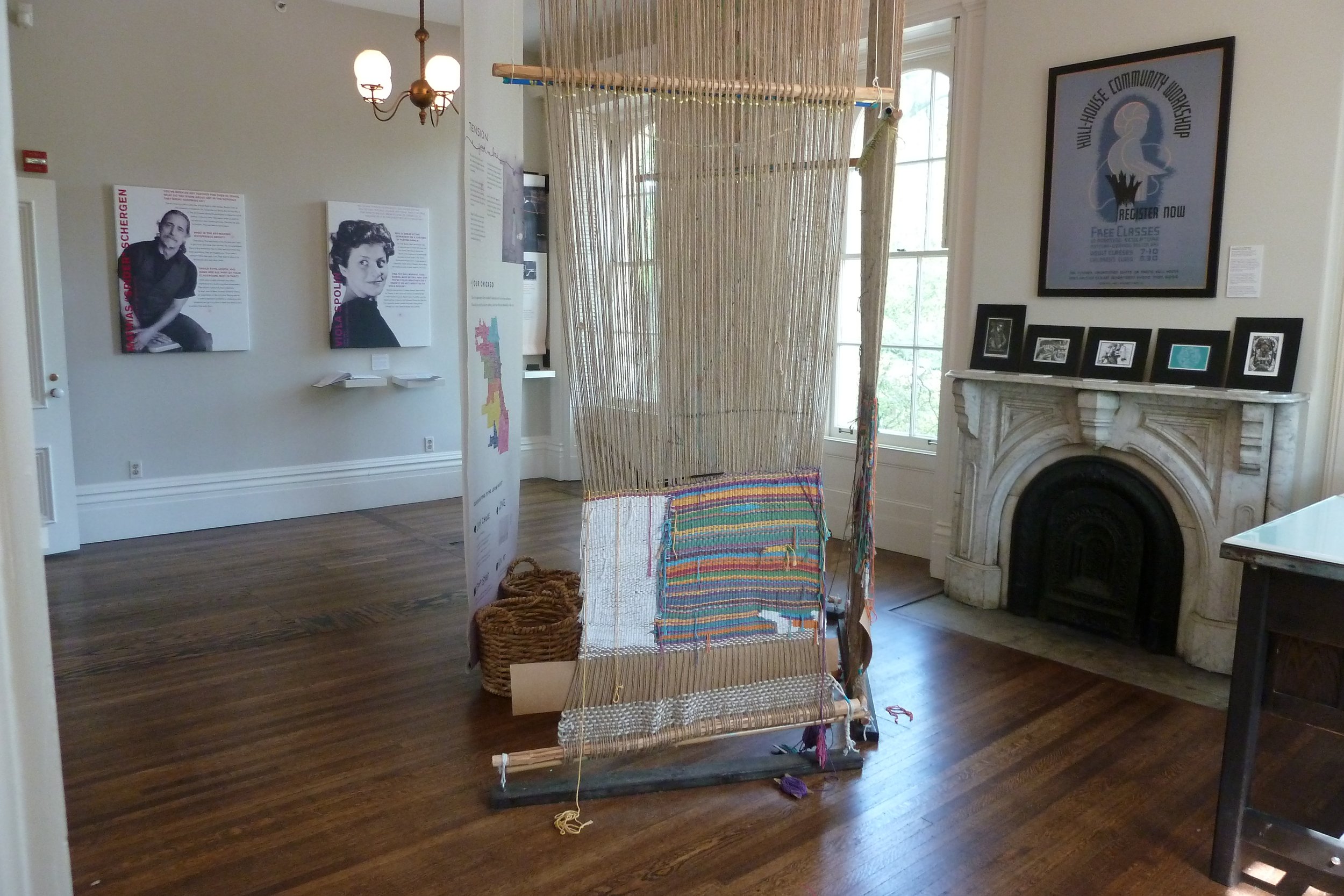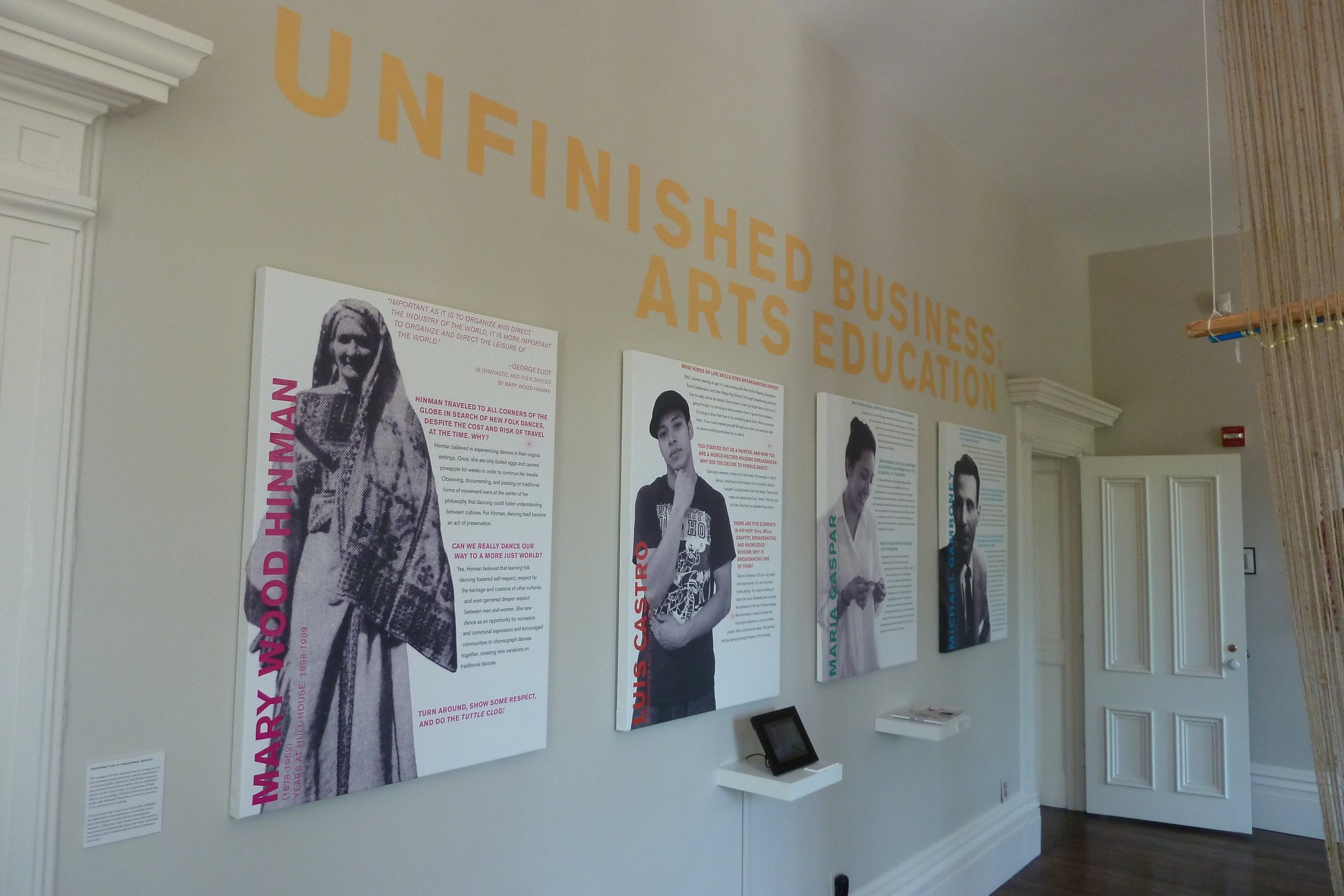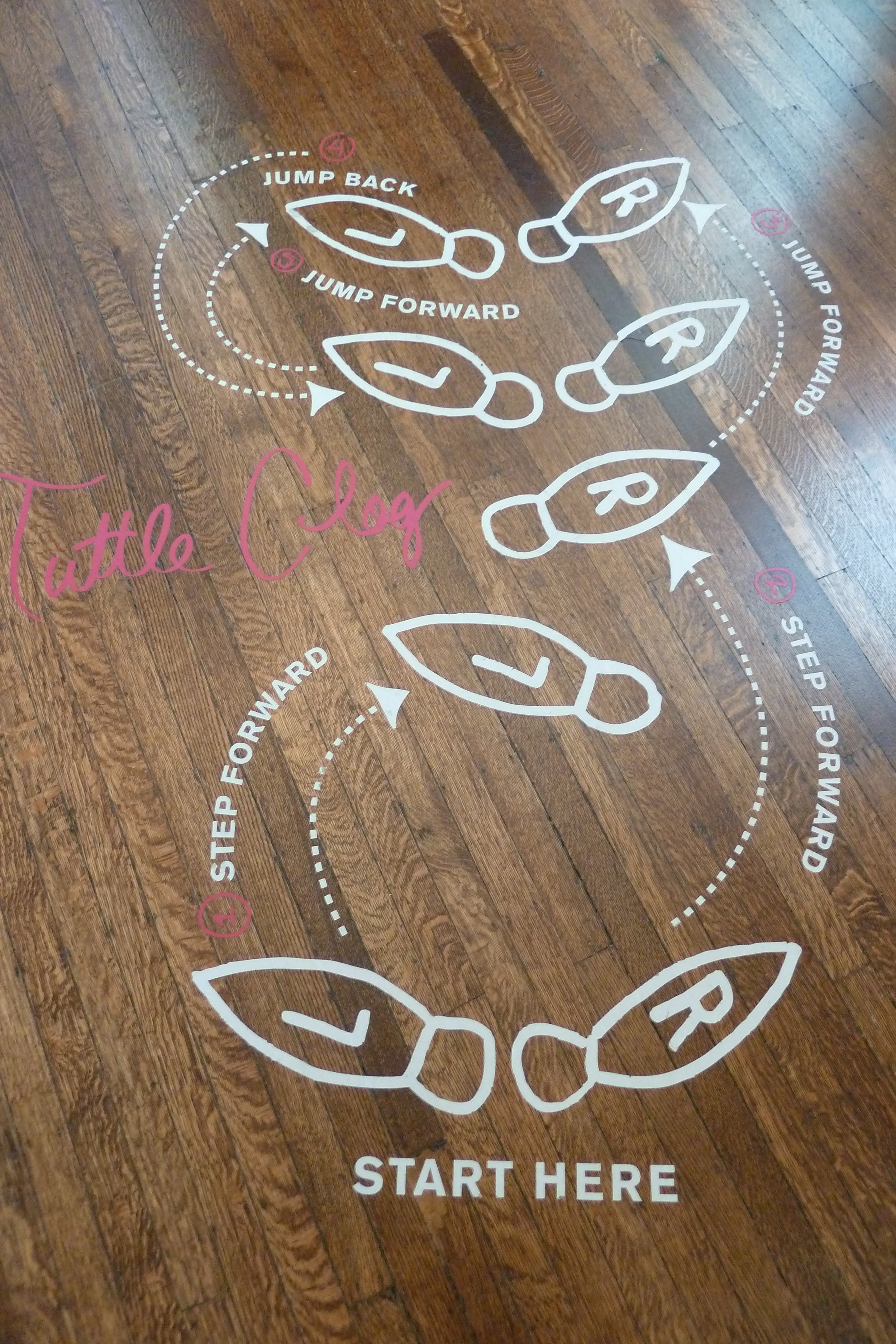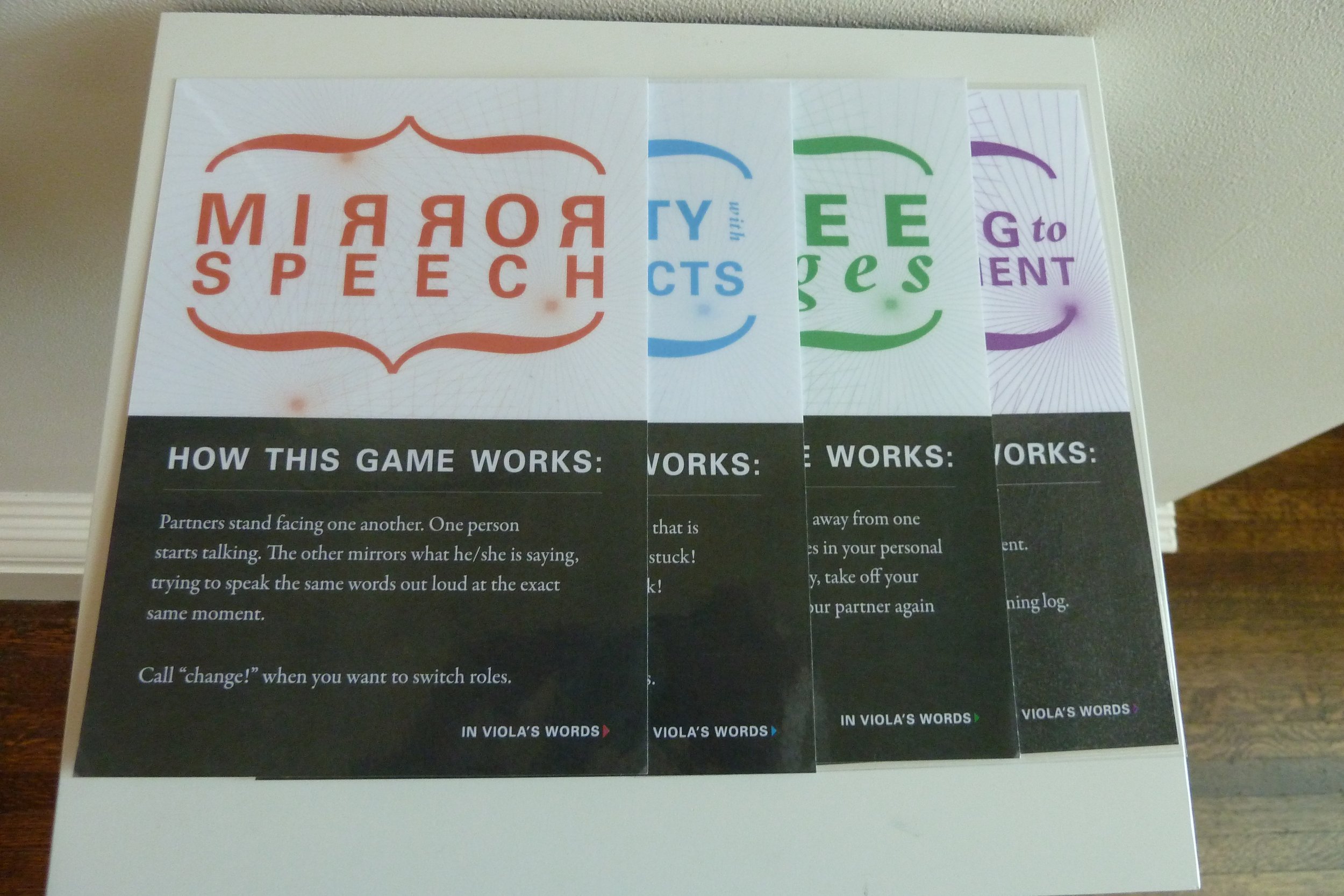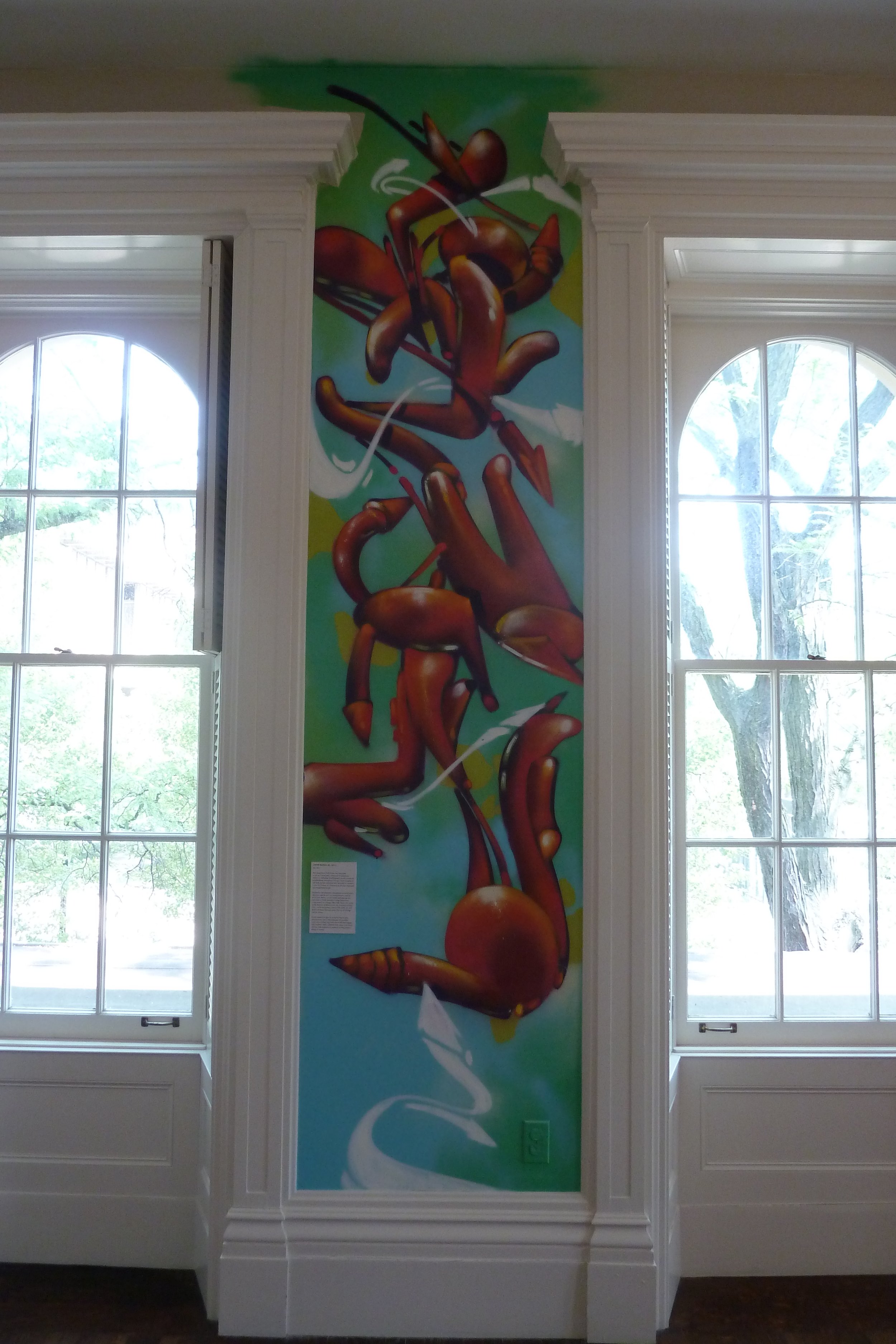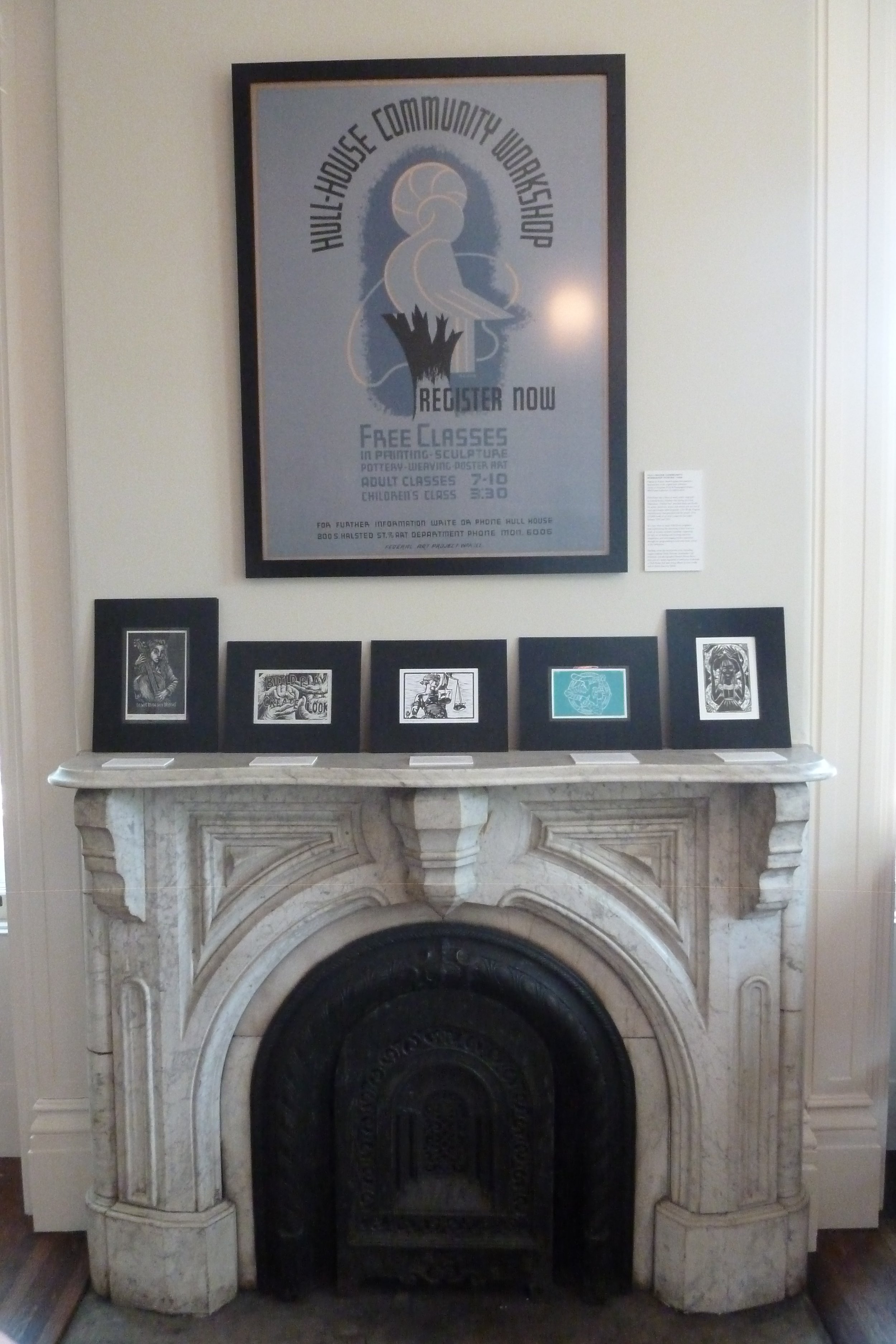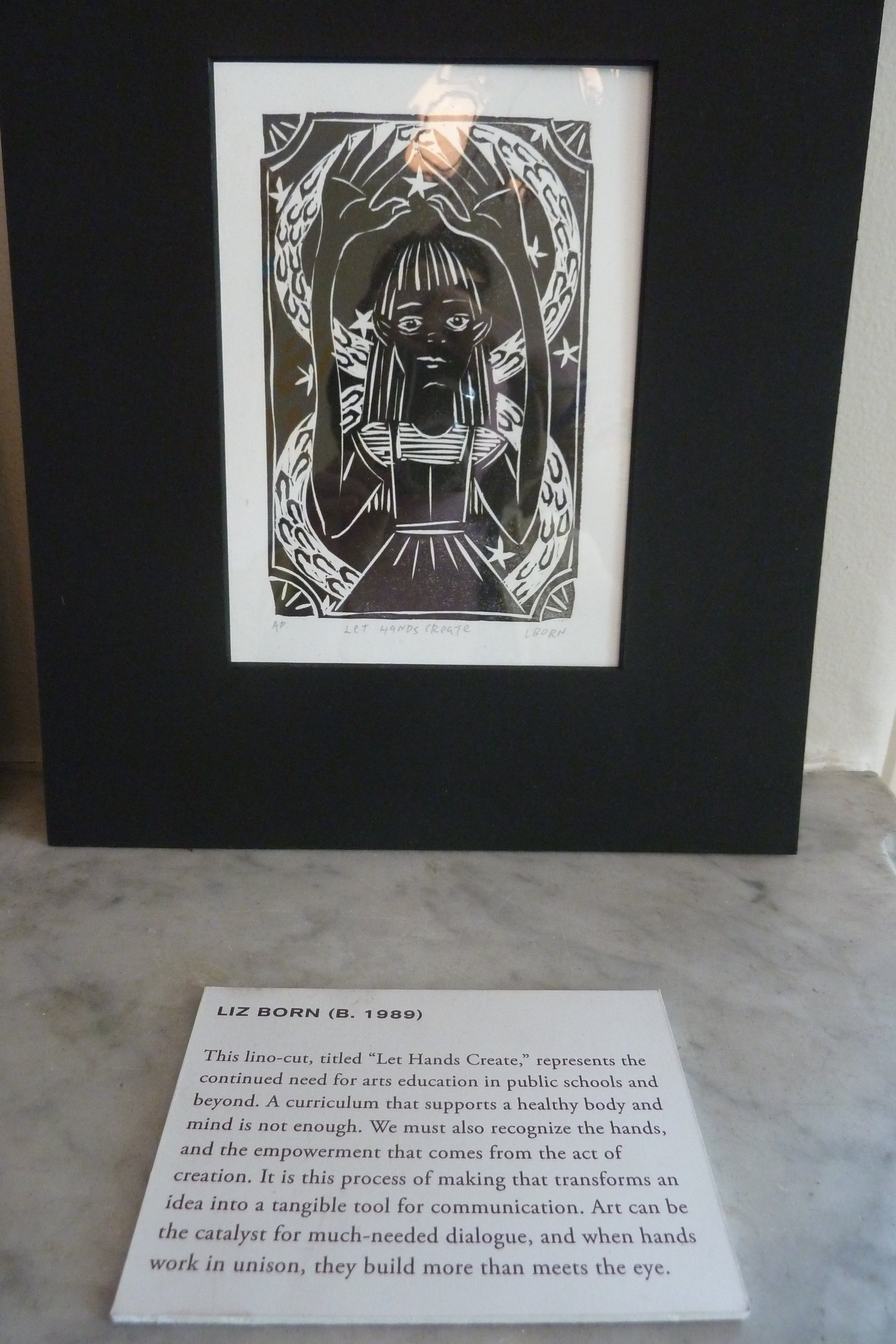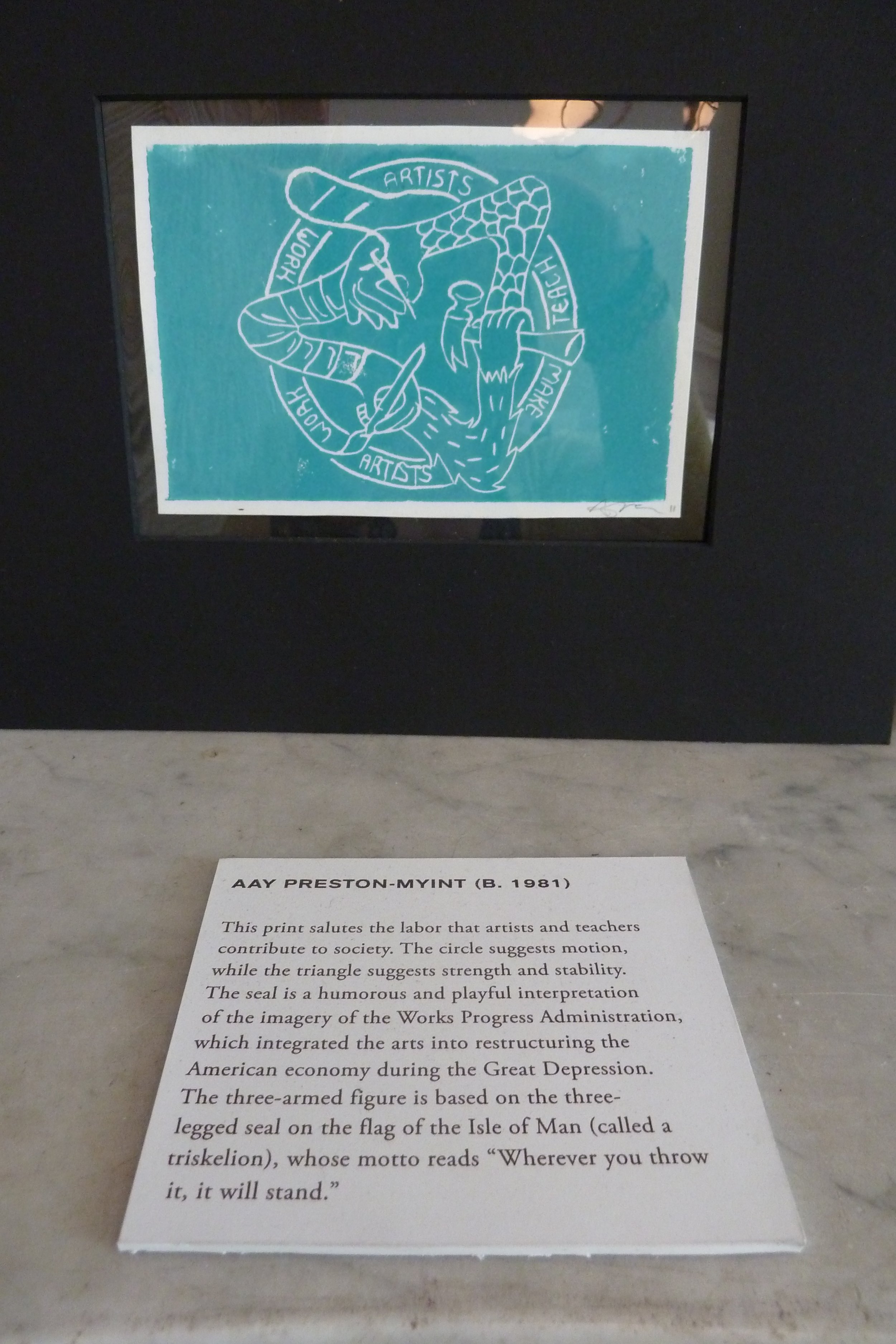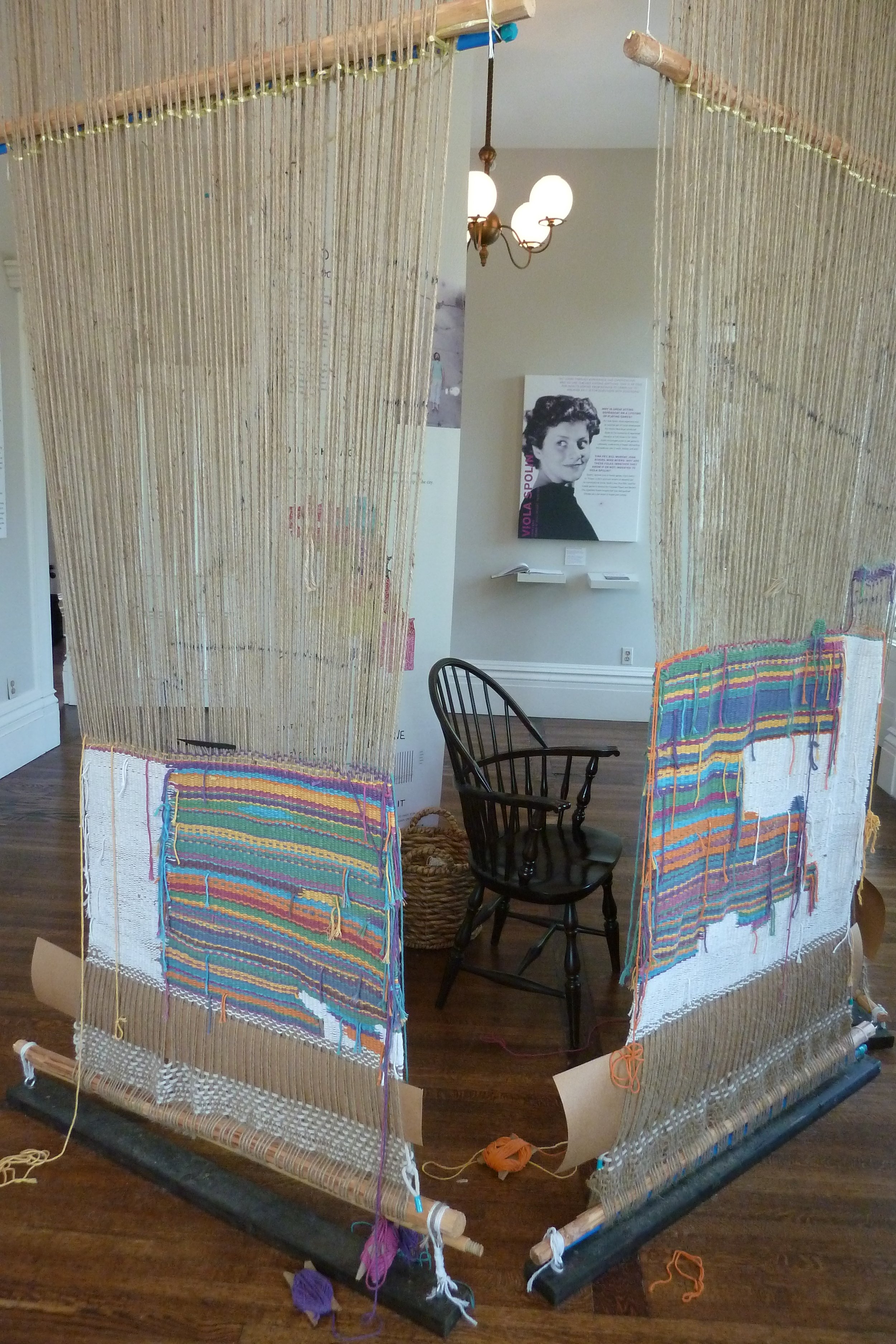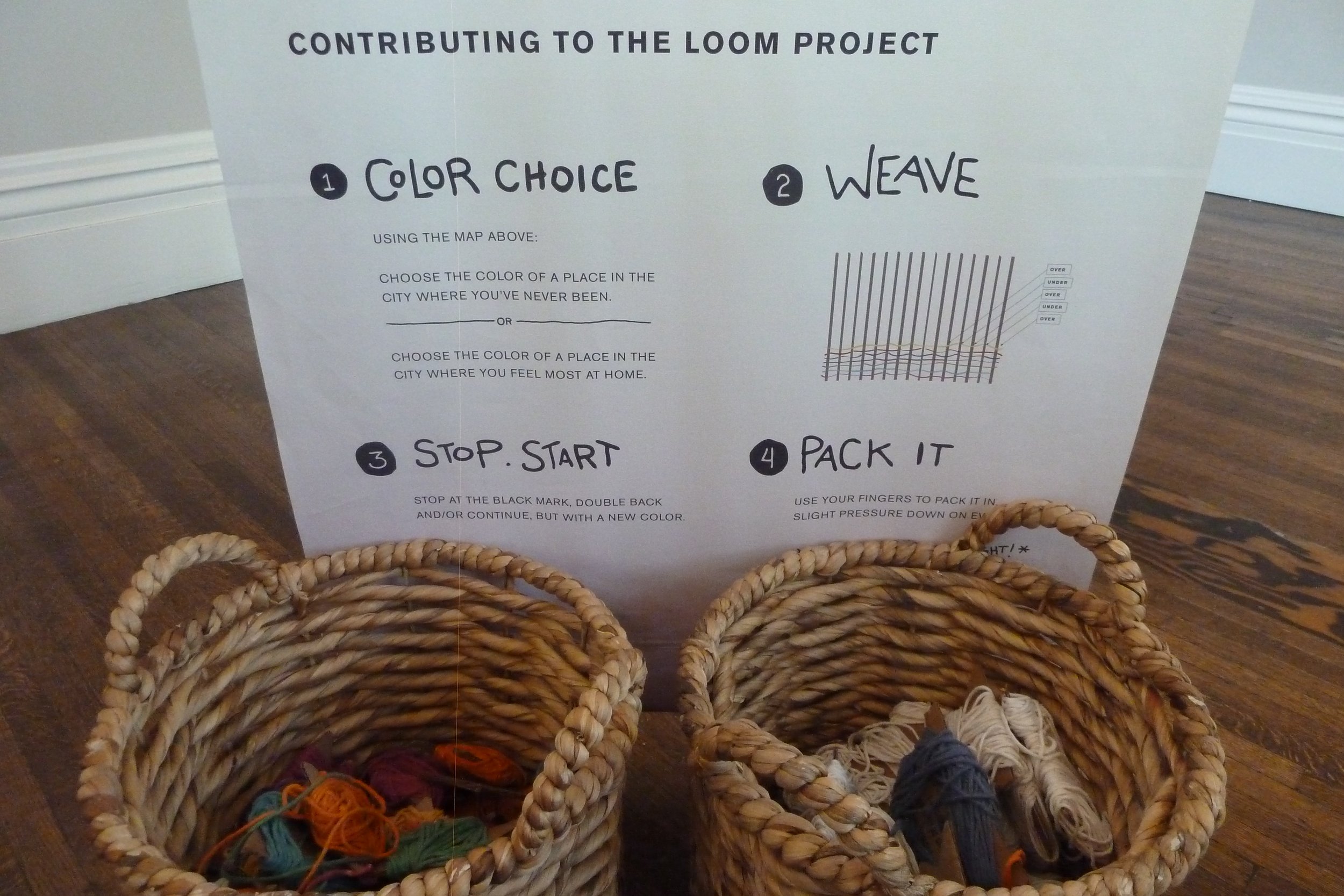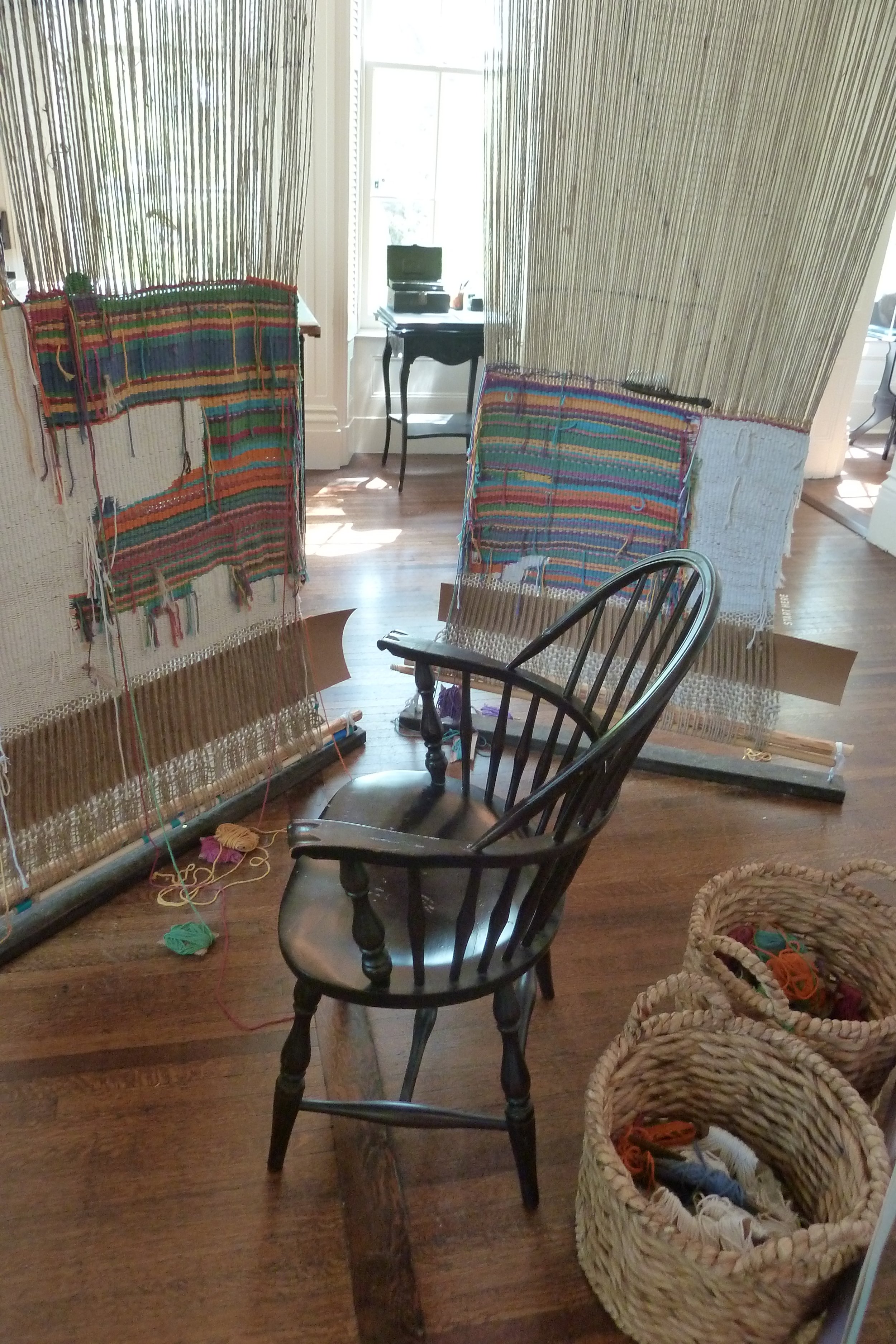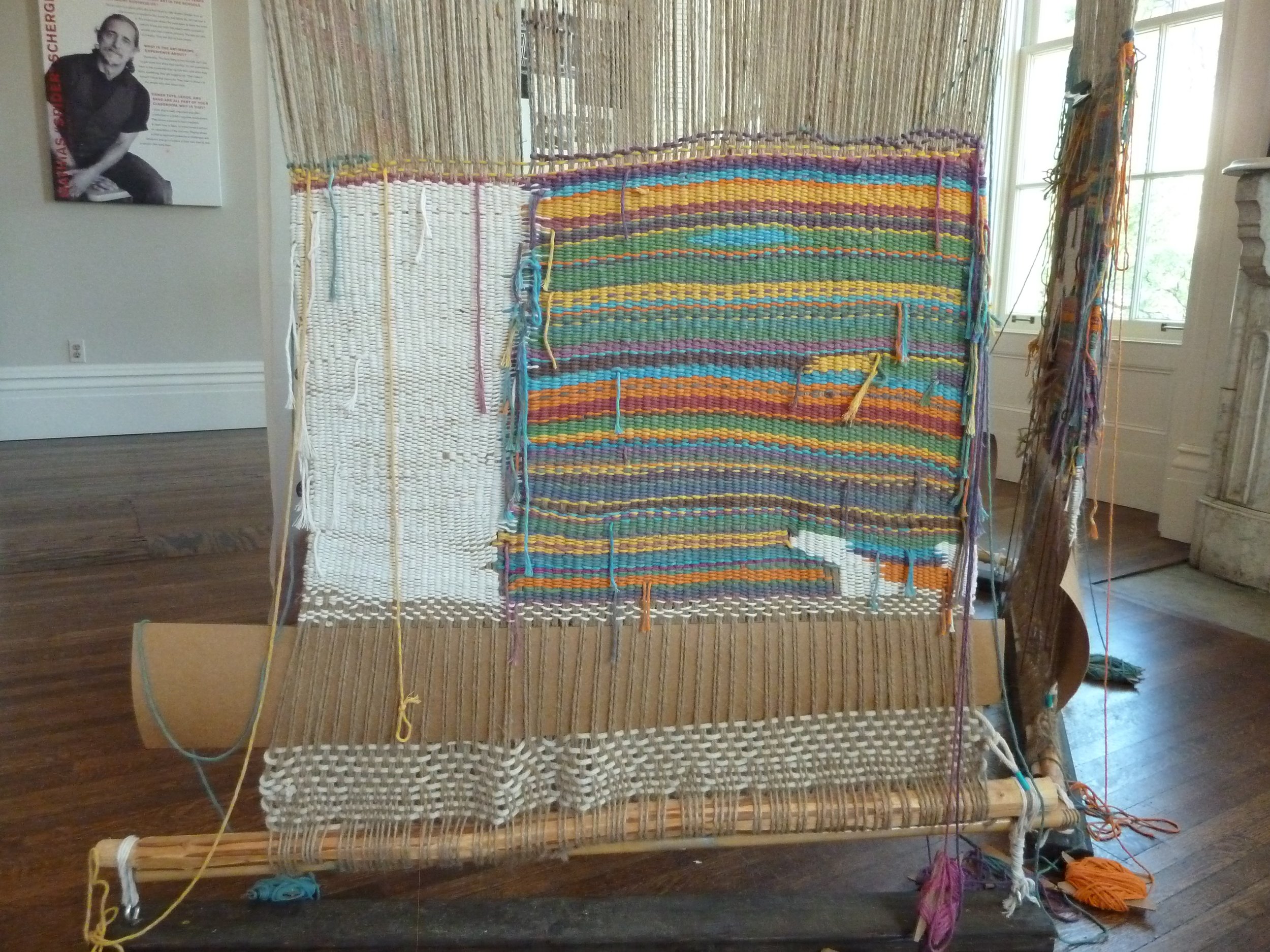Unfinished Business: Arts Education 2012
The art-making process was central to the work of Hull-House and became the underpinning of community building and cross-cultural communication. Hull-House’s revolutionary arts program included groundbreaking exhibitions, support for teaching artists, and commitments to making music, visual arts, theater, and poetry accessible to all people. The reformers insisted on cultural rights and creative expression for all and believed that the arts were central to a thriving democracy. Their legacy continues to inform Chicago’s vibrant and diverse cultural landscape of teaching artists, storefront theaters, and youth-centered arts organizations. The Settlement community challenged class, gender, and racial privilege by asking critical questions such as, “Who gets to make art?”, “Who gets to teach art?”, and, “Who gets to determine what is beautiful?”.
Unfinished Business was a yearlong community-curated, participatory exhibition that featured public workshops, performances, conversations, and innovative projects that sought to unleash people’s radical imaginations about our collective future. While much progress has been made on the issues about which Jane Addams and other Hull-House reformers cared so deeply, there is still a lot of “Unfinished Business.” The work of creating a more just society continues.
Unfinished Business: Arts Education tied Hull House’s historical commitments to participatory arts to the modern day by including profiles of historical reformers of arts education alongside interviews with contemporary Chicago artists. Visitors were also invited to engage in hands-on arts experiences with a loom built by the artists Alexis Ortiz, a pop-up print station curated by the printmaker David Jones, and instructions for improvisation games by Viola Spolin.
